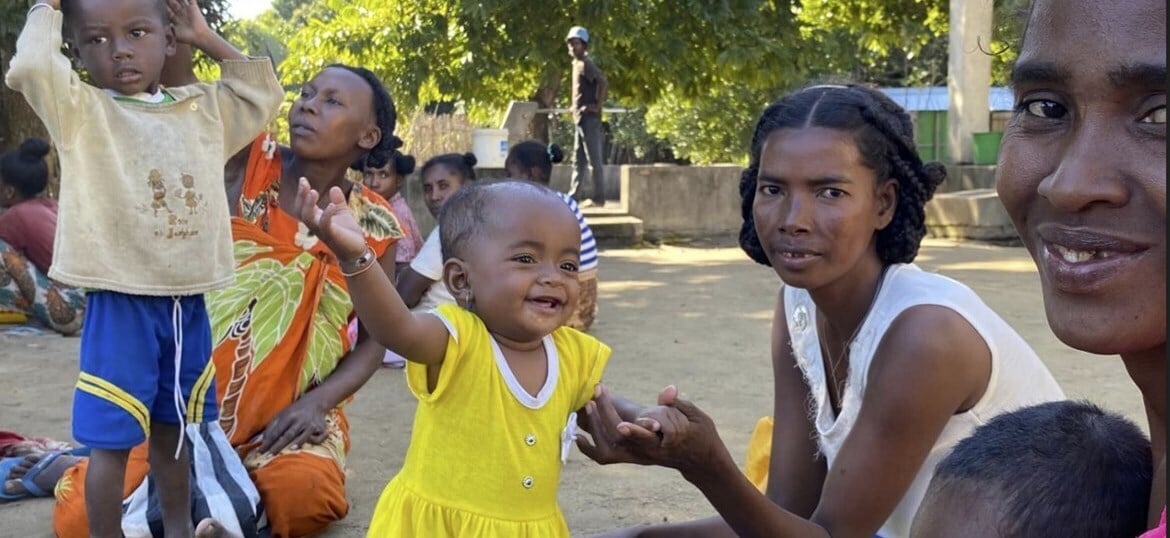
Funded
- About
Summary
Prolonged drought lasting from 2018 to 2022, combined with the socio-economic impact of the COVID-19 pandemic, left many people vulnerable to food insecurity in southern Madagascar. In 2021, during the peak of the most severe drought since 1981, the Integrated Food Security Phase Classification System (IPC) declared 51% of the population in Anosy to be in crisis, with approximately 30,000 children aged 6- 59 months experiencing acute malnutrition. The combined effects of drought, consecutive cyclones, dwindling harvests, stocks, and food price inflation further compounded the food security situation. In response, SEED Madagascar (SEED) launched an Emergency Food Distribution (EFD) Programme to support children with acute malnourishment and their families across Fort Dauphin. As part of Madagascar’s wider national and regional response to food insecurity, SEED distributed Ready-to-Use-Supplementary Food (RUSF) sachets and unprepared food to support the recovery of 4,843 children and 27,334 of their family members across Fort Dauphin from February 2021 to August 2023.
From April 2023, SEED has focused on promoting longer-term community resilience by supporting Community Health Centres (CSBs) to implement government led ‘Advanced Strategy for Proximity Care’ campaigns, bringing mobile health clinics to the rural communities. Through the campaign, communities received family planning services, HIV screening, COVID-19 and polio vaccinations, and children under five were screened and treated for malnutrition and common diseases like malaria. In addition, SEED provided six CSBs with water storage containers, installed a rainwater harvesting system, and supported communities to repair and empty their latrines. This has improved access to clean and safe drinking water for staff and patients and enhanced the hygiene and sanitation of the communities.
The Recovery & Resilience Programme
With the Emergency Food Programme having now ended, SEED is preparing for the next three-year stage of its Recovery and Resilience Programme to support these communities in the longer-term. This work will prioritise children under the age of five, as malnutrition at this age can have long-term consequences for health and development, such as growth retardation and increased risk of serious infection. Pregnant women and mothers will also be targeted for support due to their high nutritional needs during pregnancy and breastfeeding. In addition, this project will support CSBs medical staff and community health workers to improve the prevention of child malnutrition. By supporting early identification through caregivers and referral to CSBs and training medical staff in best practices for treating malnutrition, this project will help local health centres to better meet the needs of malnourished children as well as other community residents.
Thank you in advance for choosing to support the Recovery and Resilience Programme. Your contributions enable SEED to support sustainable change for the people in southeast Madagascar.


